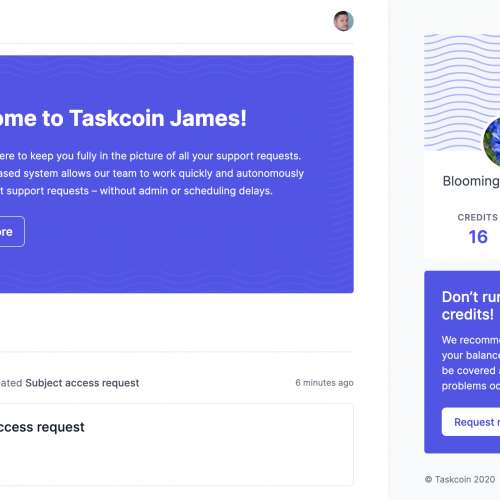Your startup is exciting and it’s only natural that you want to shout every new development from the rooftops. You’re excited about your new update, so the press will be too, right? Wrong.
Bombarding your media contacts with endless pitches means risking the valuable relationships you’ve been working so hard to build and pretty soon they’re going to stop reading your emails completely.
No One Cares About Your Company
One of our favourite startup quotes comes from Coull CEO Irfon Watkins who once told us “no one gives a fuck about your startup except you”. Just like other peoples’ children and holiday photos aren’t as interesting to you as to them, no one is going to care about your startup as much as you do.
Founder of Snapp Conner PR, Cheryl Snapp Conner gives some great advice on pitching to the press in this article for Forbes:
“Believe it or not, your company and product, by themselves, are not an interesting topic… Think of what that story might be and imagine what it might look like in the hands of the reporter you’ve chosen.”
Inc.com columnist Jeff Haden doesn’t want to know how much a little publicity will help you.
“I know you want publicity, and I know why. I get it. We’re cool.”
You’re Not Unique
Hubspot founder Dharmesh Shah hates being told a startup’s story is ‘unique’.
“Your story is deservedly fascinating to you because you lived it, but to the average reader your story sounds a lot like every other entrepreneur’s story. Claiming your story is unique creates an expectation that, if not met, negatively impacts the rest of your pitch.”
But what if you’re startup really is one of a kind? You don’t need to mention it. So many pitches contain the word “unique” that journalists are getting sick of hearing it.
“So many pitches use this word that it has become an almost redundant adjective. All we really, really want to hear about is what your product or company does. ” Paul Sawers, The Next Web
Knowing When to Pitch
The key to getting great coverage and building media relationships is offering news about your startup that is actually newsworthy. When was the last time you saw a TechCrunch article about a holiday promotion or a minor update to an app? That’s because TechCrunch tries hard to be objective and share news they know their readers will be interested in.
This Tech in Asia post by Paul Bischoff gives some great advice for when you should (and shouldn’t) pitch your news to the press. Investment, launch, expansion and profit can all make interesting news stories according to Bischoff, but minor updates, competition wins and promotions will most likely be ignored.
Dharmesh Shah isn’t interested in profile pieces. He doesn’t want to to know what you do, he wants to know what you know.
“The best articles let readers learn from your experience, your mistakes, and your knowledge. Always focus on benefiting readers: When you do, your company gets to bask in the reflected PR glow.”
Journalists Really Do Like Pitches
Remember that journalists really do want to hear your pitches. Without pitches and press releases, where would journalists find their news? You’re not just asking the journalist to help you get coverage, you’re giving them a story and they will appreciate that.
However, in order to get press coverage and build valuable relationships with journalists, you need to make sure your pitches are relevant and truly newsimpleweb.co.ukorthy. Unfortunately, nobody cares about your startup, but if you pitch it right, a lot of people are going to love your story.



